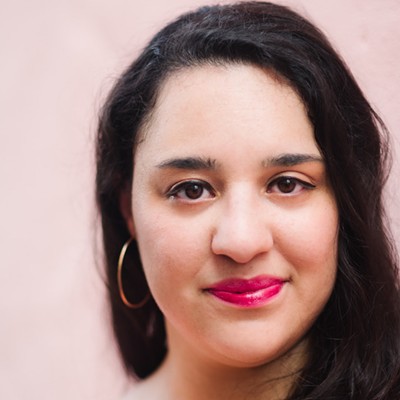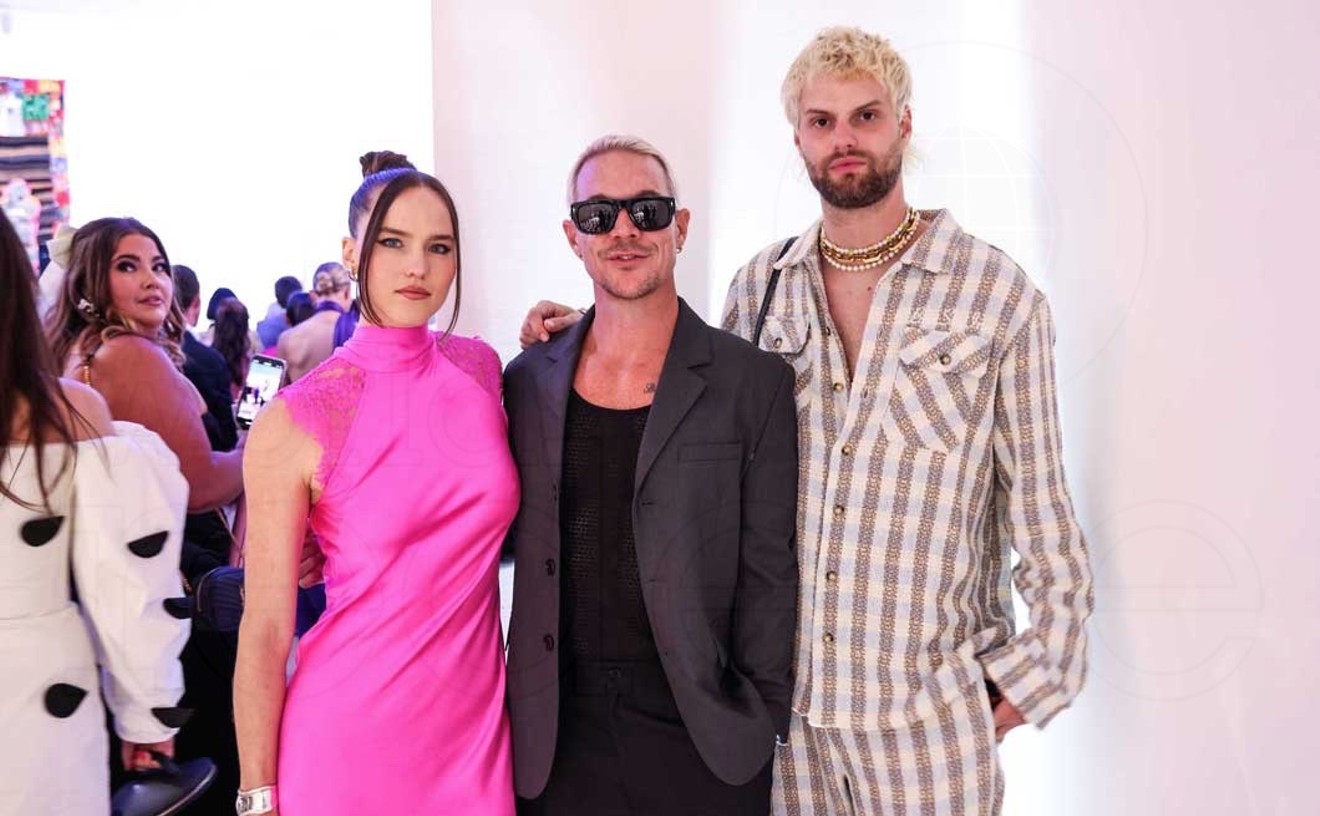During an interview about her Art Basel installation Gardens Speak, artist Tania El Khoury is quick to correct a question regarding the "crisis" in Syria, the subject of two interactive pieces she exhibited during Miami Art Week.
"Well, first," she says, "it wasn't a crisis. First, it was an uprising."
El Khoury makes an important distinction. Calling the turmoil in Syria a "crisis" rather than an "uprising" runs the risk of erasing the courageous actions of the Syrian people during the Syrian Civil War, which began in 2011 in the wake of the Arab Spring protests. In the years since the uprising, the Syrian Army has cracked down on protesters, even using chemical weapons against their own people, killing thousands and displacing millions.
Gardens Speak aimed to bring the voices of ten people killed in the fighting back from beyond the grave. The interactive performance was on display during Art Basel in the Fillmore's Gleason Room. Participants walked into the theater's backstage room, dimly lit by a harsh, warm light in the corner. Ten clear plastic coats hung on a rack, and guests were invited to put them on, take off their shoes, grab a flashlight, and take a postcard bearing instructions.
A guide walked participants into the adjacent, pitch-black room, the center of which had been converted into a makeshift grave. Fresh, wet dirt was tightly packed inside a rectangular perimeter containing ten wooden tombstones with Arabic script matching that on the postcards. Once a participant matched their postcard with its corresponding tombstone, they were instructed to dig through the dirt until they could hear the voice of a person coming from the grave. Theirs were the voices of ordinary people telling extraordinary stories about the horrors of war and the cold indifference of tyranny.
One audio recording told the story of a shopkeeper, Abu Khaleb, largely unconcerned with politics on a national scale; he worried most about the hopeless future his children might face growing up in a war zone without a father. Though participants lay on the grave, in the fetal position, ear close to the ground to bear witness to the man's testimony, an unlikely hope nagged at the heart — the hope that somehow this story was an exception, that it ended happily, that the grave installation was there for dramatic effect, that this man got to watch his children grow up, and that they continued to have the protection of their father as everything they've ever known crumbled around them. The actor voicing the man's story dashed those hopes, telling the listener what Khaleb might've thought in his final moments; that he was relieved to have died quickly and painlessly as a foreign object ripped through his heart.
El Khoury put together the stories of the deceased through interviews with surviving family members and in some cases found audio recordings of the victims. "We have attempted to record his oral history as he himself would have told it," the participant instruction card of Khaleb reads. El Khoury says she aimed to select stories of people who had varied experiences during the uprising.
After participants listened to the stories of the deceased, they were encouraged to write letters to them, which El Khoury plans to share with surviving family members. Eventually, the letters might also become part of their own public piece.
"I shared some with [surviving family members] I have contact with," she says, "but now, because the letters are many, I'm trying to find a way for them to be shared more publicly, so I'm thinking maybe to digitize them, put them in a way where they become an archive, or make an installation where they're shared together, and this is when I will also reach out to people who told us the stories."
[
{
"name": "Air - MediumRectangle - Inline Content - Mobile Display Size",
"component": "19274298",
"insertPoint": "2",
"requiredCountToDisplay": "2"
},{
"name": "Editor Picks",
"component": "17482312",
"insertPoint": "4",
"requiredCountToDisplay": "1"
},{
"name": "Inline Links",
"component": "18711090",
"insertPoint": "8th",
"startingPoint": 8,
"requiredCountToDisplay": "7",
"maxInsertions": 25
},{
"name": "Air - MediumRectangle - Combo - Inline Content",
"component": "17482310",
"insertPoint": "8th",
"startingPoint": 8,
"requiredCountToDisplay": "7",
"maxInsertions": 25
},{
"name": "Inline Links",
"component": "18711090",
"insertPoint": "8th",
"startingPoint": 12,
"requiredCountToDisplay": "11",
"maxInsertions": 25
},{
"name": "Air - Leaderboard Tower - Combo - Inline Content",
"component": "17482313",
"insertPoint": "8th",
"startingPoint": 12,
"requiredCountToDisplay": "11",
"maxInsertions": 25
}
]












